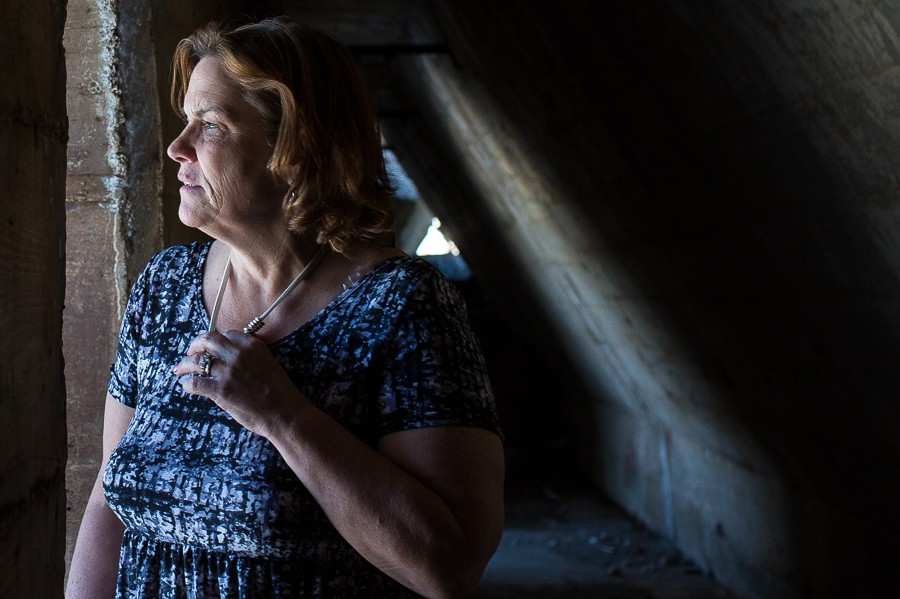Tenth Ward alderman Sue Sadlowski Garza is cultivating a new kind of progressive power on Chicago’s southeast side.
By Ben Joravsky
s Tuesday, the day Tenth Ward alderman Sue Sadlowski Garza sets aside for constituents to drop in and tell her what’s on their minds.
Garza sits in her swivel chair in the back room of her southeast-side ward office, preparing to meet her people.
As a joke, I tell her she’s the new Eddie Vrdolyak, ready to hold court. That draws a laugh. Vrdolyak and Garza have virtually nothing in common, other than the fact they both got elected alderman of the Tenth Ward.
Still, comparing one to the other is a useful way to illustrate how much everything in Chicago—including the southeast side—has changed over the last few decades. So, indulge me for a moment.
Nicknamed “Fast Eddie,” Vrdolyak was the original Donald Trump Democrat—playing one race against the other to accumulate more power. In 1983 he organized most of the city’s white aldermen against Harold Washington, the city’s first black mayor, in an epic and ugly political battle known as the Council Wars.
A wealthy, wheeling-dealing lawyer, Vrdolyak favored dark business suits, and was rarely seen without a bodyguard at his side as he was chauffeured around town in a limousine.
By contrast, Garza hasn’t had a nickname since high school, when her friends called her “Suzy Q.” She’s a former public school counselor and Chicago Teachers Union activist who’s married to an ironworker. They live in a comfortable working-class neighborhood in the shadow of the old steel mills where Garza’s father, Ed Sadlowski, an icon in the labor movement, once worked.
If Garza has Vrdolyak-like ambitions of wealth and power, she does a masterful job of concealing them. She’s a progressive Democrat, a Bernie Sanders delegate. In the warmer months, she wears summer business casual—capris, patterned tunics, and a black blazer. In the lobby of her ward office hangs a poster that quotes Jimi Hendrix: “When the power of love overcomes the love of power, the world will know peace.”
A very unusual sentiment for a Chicago politician to express.
In 2015, Garza won her aldermanic seat by narrowly defeating incumbent John Pope, one of Mayor Rahm Emanuel’s closest City Council supporters—an offense, it seems, the mayor may never forgive.
Whereas Vrdolyak once organized a majority of aldermen against a progressive mayor, Garza’s now among a progressive minority of aldermen trying to push a centrist mayor to the left. Good luck with that.
Back in the ward office, Garza’s first meeting of the day is with the father of a 14-year-old girl who used to be her student back when Garza was an elementary school guidance counselor.
The girl and Garza exchange hugs.
“You’re looking good, babe,” Garza says.
She may be the only alderman in Chicago who can get away with calling a young woman “babe.”
As everyone sits around a long table, it occurs to me that the father may have brought his daughter to this meeting because he figured he could use her presence to win over the boss. At least, that’s how it usually works in Chicago.
The father clears his throat and gets down to business.
Several years ago, a city work crew destroyed the curb near his house, he says. He shows Garza a picture of the damage. He’s hoping Garza can use her influence to get the city to repair it.
“Alderman—” the man says.
“Sue,” says Garza.
The man looks confused.
“You can call me Sue,” she says. “That’s my name. You don’t have to call me alderman.”
I feel as though I’m in a parody of The Godfather, where the great Don Corleone is telling a humble favor seeker: “Please, call me Vito!”
The man looks at me for guidance. I shrug. He returns to his story.
“OK, Alderman,” he says.
Garza sighs. Yes, the Tenth Ward has changed. But apparently, it’s going to take some time before that message gets out.

- Ed Sadlowski with Sue, then 17, during his run for president of the national steelworkers’ union in 1977.
- SUN-TIMES PRINT COLLECTION
GARZA WAS BORN in 1959 at the University of Chicago Hospital in Hyde Park. But after a day or two, her family piled her into the car and took her home to the southeast side. She’s been living there ever since.
This portion of Chicago swings east under the lake and touches the northwest corner of Indiana—it’s a land of factories and warehouses, marshes and swamps, right there on the edge of the lake, cut off from the rest of the city by expressways, freight train tracks, and landfills. Most people can spend a lifetime in Chicago and never realize it exists. Garza and others here often refer to their part of town as the “forgotten” Tenth Ward.
In that neck of the woods, Garza’s father, Ed Sadlowski, was something of a legend. He was seen as a fiery young radical, aiming to lead a steelworkers’ uprising against their entrenched union leadership. In 1974, at age 37, he pulled off an upset by getting elected director of United Steel Workers of America District 31, which encompassed Chicago and northwest Indiana and at the time was the largest steelworkers’ local in the country, with more than 130,000 members.
In 1977, he ran for president of the national union. His bid garnered glowing write-ups in publications from Rolling Stone to Penthouse to theNew York Times Magazine. Charismatic and well-read, he’d win over reporters by taking them to the local watering hole, where over beers he’d deliver blistering critiques of fat-cat bosses, reminisce about labor legends of yore, and occasionally break into a union song.
Sadlowski envisioned a utopian future in which the working class would work less and earn more. In reality, things went the other way: he lost his election bid, almost all of the steel mills eventually closed, and union membership shrunk to a fraction of what it once was.
Most of those late-70s profiles contained an obligatory scene set inside Sadlowski’s book-strewn southeast-side house, where his wife (Marlene, a social worker) and four kids lingered in the background.
Sue Sadlowski was the oldest of those kids. “I knew my dad was some kind of hotshot, but I was barely paying attention,” she says now. “I was in my own world back then—it was sex, drugs, and rock ‘n’ roll. I was a wild kid, man.”
She was among a gaggle of southeast-side teens—the working-class sons and daughters of south-side factory workers—drinking beer and smoking reefer in the forest preserve out by Wolf Lake. “There’d be hundreds of kids,” she says. “Wild parties, man. People doing their thing.”
But for all his gallivanting with the visiting press, Sadlowski was a strict disciplinarian on the home front. He expected Sue home at a certain hour, and insisted she study harder.
“He was always very supportive, but he wanted me to do things right. And by that he meant he wanted me to do it his way,” Garza says. “He used to tell me, ‘I won’t steer you wrong.’ But I’m as hardheaded as he is. So, yeah, I pushed back. But that’s what he did with his union work. I guess you can say we were cut from the same cloth.”
In 1977, Garza graduated from southeast-side George Washington High School and went to Western Illinois University. But after a year she dropped out and moved back home.
She took a job as a bartender and waitress at a Bennigan’s in Calumet City. She married Dave Martino, an ironworker who’d been her high school sweetheart. “I got married at 21. Had a kid at 21. And got divorced when I was 23,” she says. “You can see how I was driving my parents crazy.”
Martino died in a car crash in 1986. “One of the hardest things I’ve ever had to do was to tell David, my five-year-old-son, that his father had died.”
In the mid-1980s, she started dating Raul Garza, who also grew up in the area. They got married in 1996. Raul Garza adopted David, and together he and Sue had three other children.
“Raul and I moved in together before we got married,” she says. “My parents weren’t too happy about that, but they bought us this giant console TV as a housewarming present. My dad tells Raul, ‘This is so you never bring her back.’ ”
Sadlowski was joking, Garza says, but he was also making a larger point. Sooner or later even the wildest rock ‘n’ rollers have to grow up.
Garza did too. While working as a waitress and raising her son, she got a bachelor’s degree from Governors State University in Will County and a master’s in counseling from Concordia University in River Forest. In 1996, she got a job as a counselor at Jane Addams, the same public grammar school she and her children attended.
Eventually, Garza became a leader in the Chicago Teachers Union. She helped coordinate the 2012 teachers’ strike, speaking at rallies and meetings where she denounced “corporate fat cats who keep shelling out directives that have nothing to do with education.”
Now when she speaks, she hears her father’s voice. “I find myself saying things he used to say. I spent my teenage years rebelling against him, and it’s like I’m picking up where he left off. Life’s weird, isn’t it?”
Over the last few years her parents have retired and moved to Florida. “My mom’s doing great, but it’s sad—my dad’s slipping,” she says. “I think he’s in the early stage of dementia. He forgets things. Sometimes he says stuff and I’m not sure what he’s saying.”
Still, even in his diminished state, Garza describes her father as an “armchair alderman.”
“He still wants to tell me what to do,” she says. “And I still want to do what I want to do. But you know something? Outside of my mom, no one loves me like my dad. Put aside all our head butting and he’s just a dad trying to protect his daughter.”







